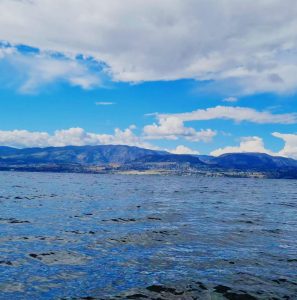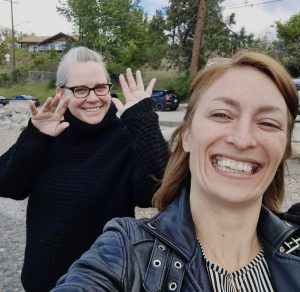

On May 16, EDGES member Dacotah-Victoria gave a talk at the Canadian Anthropology Society (CASCA) Conference hosted at UBC Okanagan during a session entitled: Rivers and Their People, A CASCA 2024 Flash Talk Session. The session was organized by John Wagner, UBC Okanagan, and Sabrina Doyon, Laval University, and focused on the variety of human/river relationships that characterize their research settings, which include the St. Lawrence River and tributaries in Quebec, the Columbia River in Canada and the United States, the Okanagan River, Peachland Creek and Brandt Creek in the Okanagan Valley of British Columbia, the Chu and Talas Rivers in Kyrgyzstan and Kazakhstan, and the cenotes of the Yucatan Peninsula, Mexico, which can be understood as an underground river system. In all of these settings, the lived experiences of ‘river citizens’ are mediated by colonial histories, developmentalist state agendas, and top-down approaches to governance that tend to marginalize local voices and local knowledges. Important changes are underway, however, in all these settings and, in this session, we will compare and evaluate the extent to which local voices and local knowledges are either the agents or beneficiaries of these changes.
Congrats, Dacotah-Victoria! More information on the talk can be found below.
Title: The Water Serpent Spoke, Are We listening? Transformative Storytelling as Research Method for Water Security
Abstract: Recent scholarship emphasizes that existing methodological approaches to water security issues must engage broader hydrosocial relationships in response to ever-increasing water risks. Our investigation sought to unveil water (bodies’) non-material dimensions beyond H2O by employing a community-based relational method of storytelling with water, “Ha,” as a transformative practice through a case study in the south-central region of the Yucatán Peninsula, Mexico. The research method generates critical spaces, allowing for new meanings and insights, revitalizes practical knowledge of water bodies “Dz’onot” (Cenotes), and encourages “Ha’Kanules” (water guardianship) as a countermeasure to minimize security risks. Transformative storytelling inspires co-inquiry with an animate-human, more-than-human, and sentient world, benefiting communities and supporting linkages to ancestral wisdom for healthy and secure water futures.